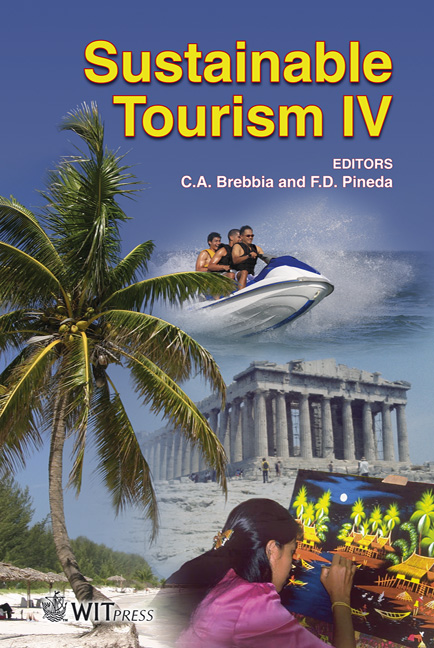Sustainable Tourism Planning For The Only Coral Reef In The Gulf Of California: Cabo Pulmo National Park
Price
Free (open access)
Transaction
Volume
139
Pages
11
Page Range
263 - 273
Published
2010
Size
5,007 kb
Paper DOI
10.2495/ST100231
Copyright
WIT Press
Author(s)
O. Arizpe & M. Covarrubias
Abstract
The most northerly coral reef in the Eastern Pacific has supported commercial and sport fishing for almost a century. Research and assessments carried out since 1988 showed an increasing environmental impact of extractive actions resulting in a decline of coral cover and density of fish, mollusc and other marine populations, generating negative effects in the only coral reef in the Gulf of California. The growing importance of tourism activities, especially eco-tourism, as a source of employment and welfare creates the opportunity to shift from extractive actions to a sustainable tourism approach. The purpose of this study was to develop a rigorously planned management strategy to improve the health of the environment and the quality of life of the human population of Cabo Pulmo. The methods used included micro region zoning through a Geographical Information System and capacity of use evaluation, integrating the physical, biological, economical and social characteristics of the study area. Based on the evaluation of indexes of fragility, pressure, and vulnerability, 31 environmental units were proposed. The results showed that the predominant environmental policy would be sustainable management within 40% of the total area, restoration in 12%, and a conservation and protection policy in 48%. The sites with most human impact would need an environmental management policy, with the encouragement of sustainable tourism, while eliminating and further excluding any extreme use or high density traditional tourism. Many workshops and meetings have been organized to recommend management actions focusing on sustainable tourism and to discuss how to tailor specific features. After more than 15 years, a recent evaluation of this coralline system, now a National Park, demonstrated that the quality of life of the local inhabitants has improved, and
Keywords
sustainable tourism, management plan, coral reef





